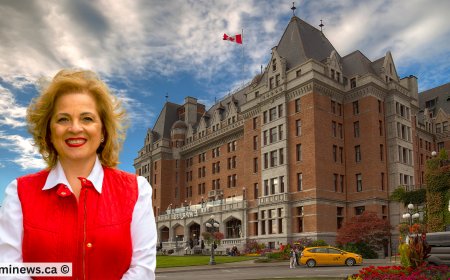Heating, refrigeration and air conditioning mechanics Canada Immigration Overview: Key Insights on Salaries, Employment, and Regional Advantages
Welcome to the pathway to Canada immigration for skilled professionals and trade workers. This guide is specifically tailored for Heating, refrigeration and air conditioning mechanics looking to work and settle in Canada, offering a deep dive into the essential aspects of immigration and employment in this field.
Introduction
Canada is a land of diverse opportunities for skilled workers looking to build a successful career in the field of Heating, Refrigeration, and Air Conditioning. In this article, we will explore the profile of Heating, refrigeration, and air conditioning mechanics, also known as HVAC mechanics, under the National Occupation Classification code (NOC) 7313. We will delve into their main job duties, education and license requirements, necessary skills, median salaries, and retirement prospects. Additionally, we will provide insights into possible visa options for international workers looking to immigrate to Canada for a rewarding career in this field.
What is the Profile Description of a Heating, refrigeration and air conditioning mechanics as per the Canadian National Occupation Classification (NOC) Standards?
Heating, refrigeration, and air conditioning mechanics are professionals who specialize in the installation, maintenance, repair, and overhaul of residential central air conditioning systems, commercial and industrial refrigeration and air conditioning systems, and combined heating, ventilation, and cooling systems. They work for heating, refrigeration, and air conditioning installation contractors, as well as in various industrial settings, food wholesalers, engineering firms, and retail and servicing establishments. This group may also include transport refrigeration mechanics.
What are the Main Job Duties of a Heating, refrigeration and air conditioning mechanics in Canada?
- Read and interpret blueprints, drawings, and specifications to plan installations
- Assemble and install refrigeration and air conditioning components using various tools
- Measure, cut, and connect piping for systems using welding and brazing equipment
- Start up systems, test for leaks, recharge with refrigerant, and perform calibration
- Repair and replace parts and components for refrigeration, air conditioning, and ventilation systems
What are the Education, Certifications, and Licensing Requirements to Work as Heating, refrigeration and air conditioning mechanics in Canada?
In order to become a Heating, Refrigeration and Air Conditioning Mechanic, individuals must typically have a high school diploma and complete training courses or a vocational program. Additionally, they must complete a three- to five-year apprenticeship program or have a combination of over five years of work experience and industry courses in refrigeration and air conditioning repair to be eligible for trade certification. Trade certification is mandatory in Nova Scotia, New Brunswick, Quebec, Ontario, Manitoba, Saskatchewan, and Alberta, while it is available but optional in other provinces and territories. Transport refrigeration mechanics can also obtain voluntary trade certification in New Brunswick and Alberta. Qualified refrigeration and air conditioning mechanics can further enhance their credentials by obtaining a Red Seal endorsement upon successfully passing the interprovincial Red Seal examination.
What Essential Skills are Required for Heating, refrigeration and air conditioning mechanics to succeed in Canada?
To be successful in the profession of heating, refrigeration, and air conditioning mechanics, individuals must possess essential skills such as the ability to measure and lay out reference points for installation, assemble and install refrigeration or air conditioning components, measure, cut and connect piping using welding and brazing equipment, start up systems and test for leaks using testing devices, recharge systems with refrigerant, check and test regulators, calibrate systems, and perform routine maintenance or servicing. Additionally, they should be able to interpret gas codes, install, troubleshoot, repair, and overhaul entire HVAC systems, handle, recover, and store refrigerants, install, maintain, and repair equipment in refrigerated trucks used for transporting food or medical supplies, repair and replace parts and components for HVAC systems, and read and interpret blueprints to ensure accurate installation and repair of systems. These skills are crucial for ensuring efficient and effective operation of heating, refrigeration, and air conditioning systems.
What is the Median Age and Retirement Age for Heating, refrigeration and air conditioning mechanics in Canada?
The skilled professionals in the field of Heating, refrigeration and air conditioning mechanics have a median age of 40, indicating that there is a mix of experienced professionals and younger individuals entering the field. The average retirement age for these professionals is 62, suggesting that many individuals choose to stay in this career for a significant portion of their working lives. This indicates a commitment to their trade and a desire to continue providing high-quality services to their clients. As the industry continues to evolve and new technologies are introduced, these experienced professionals will play a crucial role in staying ahead of the curve and adapting to changes in the HVAC market.
How many job openings exist for Other Heating, refrigeration and air conditioning mechanics in Canada, and what's their provincial distribution?
With a total of 144 job openings for Heating, refrigeration and air conditioning mechanics in Canada, there are various opportunities available across different provinces. British Columbia leads the way with 42 job openings, followed by Québec with 31 and Ontario with 26. Saskatchewan has 15 job openings, Alberta has 11, Nova Scotia has 9, Manitoba has 4, New Brunswick has 3, Newfoundland and Labrador has 2, and Prince Edward Island has 1 job opening. British Columbia has the maximum job openings for this profile, while Prince Edward Island has the minimum number of job openings. Overall, there are ample opportunities for Heating, refrigeration and air conditioning mechanics in Canada, with a good distribution of job openings across various provinces.
What is the hourly wage or salary of Heating, refrigeration and air conditioning mechanics in different Provinces of Canada?
Heating, refrigeration, and air conditioning mechanics in Canada can expect to earn a wide range of wages depending on the province in which they work. In British Columbia, wages for this profession range from a low of $17.41 to a median of $32.00 and a high of $48.00. Similarly, in Alberta, wages range from $20.00 to $36.00 and $48.00. Moving eastward, in Saskatchewan, wages can go as high as $53.01, with a median wage of $35.00 and a low of $20.00. In Manitoba, wages range from $18.00 to $30.00 and $43.00. Ontario offers wages ranging from $17.00 to $32.00 and $49.29. In Quebec, wages fall between $24.00 and $35.00, with a high of $42.50. In the Maritime provinces, wages are slightly lower with New Brunswick offering wages between $16.00 and $26.00, with a high of $39.35, and Nova Scotia ranging from $17.00 to $26.00 and $42.50. Lastly, Prince Edward Island and Newfoundland and Labrador offer wages between $17.00 and $26.00, with highs of $40.00. Overall, wages for Heating, refrigeration, and air conditioning mechanics vary across provinces, with significant differences in the high and low ends of the pay scale.
What are the various visa options available for Heating, refrigeration and air conditioning mechanics migrating to Canada?
Heating, refrigeration and air conditioning mechanics are currently in high demand in Canada and may be eligible for Category based Express Entry Invitation draws for Canadian PR under Trade Occupations Category. The Express Entry system is a point-based system that ranks candidates based on factors such as age, education, work experience, and language proficiency. In addition to Express Entry, Heating, refrigeration and air conditioning mechanics may also be able to apply for Provincial Nominee Programs or Employer Sponsored Work Visas. These programs allow candidates to be nominated by a specific province or territory, or sponsored by a Canadian employer. There may also be other visa options currently available for Heating, refrigeration and air conditioning mechanics in Canada. To learn more about the visa options available and to discuss your individual situation in detail, you can book an appointment with our professionals.
Have Questions or Need Assistance?
If you have any queries or require assistance with your immigration plans, we're here to help. Our experienced immigration consultants are ready to provide personalized guidance tailored to your specific needs.
Don't hesitate to reach out and schedule an appointment today. Whether you're seeking clarification on immigration processes, exploring visa options, or need support with documentation, we're dedicated to assisting you every step of the way.
Book an appointment with our team to discuss your immigration goals and receive expert guidance for your journey to Canada.
What's Your Reaction?
 Like
0
Like
0
 Dislike
0
Dislike
0
 Love
0
Love
0
 Funny
0
Funny
0
 Angry
0
Angry
0
 Sad
0
Sad
0
 Wow
0
Wow
0





































































